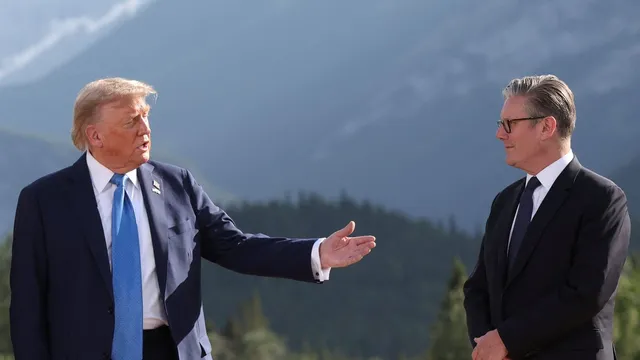
Trump administration fails to lead transatlantic alliance during pivotal moment
2025-06-24 06:51- The post-World War II security order is severely impacted by changing U.S. foreign policy, particularly under the Trump administration.
- There are various ideological perspectives within the Republican party that influence the current and future direction of U.S. foreign engagements.
- The failure of the Trump administration to take a leading role in transatlantic security raises concerns for the alliance's resilience in facing regional challenges.
Express your sentiment!
Insights
In 2025, the state of international relations reveals a significant shift in the transatlantic alliance, particularly in the context of ongoing turbulence between the United States and Europe. The foundational security and political order established post-World War II has been severely impacted, with notable events such as President Donald Trump's declarations questioning America's commitment to NATO alliances and various geopolitical challenges from countries like China and Russia. Security architectures relying on U.S. guarantees have been challenged by shifts in domestic prioritization, including reluctance to engage in foreign conflicts. The current landscape showcases various ideological perspectives within the Republican party, impacting foreign policy dynamics. The factions, which include restrainers, prioritizers, and primacists, highlight a struggle for clarity in the U.S. approach toward international relations. This uncertainty is further exacerbated by a historical context of extended military engagements that cultivate wariness among the American populace regarding foreign military adventures. As a consequence, many Americans advocate for a redefined, limited global role for the United States, prompting a reconsideration of its commitments abroad. As the Trump administration continues navigating these complex dynamics, the failure to assume a leadership role in the ongoing security challenges, particularly in response to Russia's aggression towards Ukraine, raises questions about the future of transatlantic cooperation. While some factions within Europe advocate for increased defense spending and reduced reliance on U.S. military support, this shift may lead to a reorganization of security structures and partnerships within Europe itself. Looking ahead, the need for European capitals to deepen their military capabilities and cooperation with like-minded countries becomes increasingly critical. The importance of a resilient transatlantic alliance is underscored by strategic necessities in national defense planning. Ultimately, the path forward will depend on how the U.S. engages with Europe and communicates the benefits of a close relationship to the American public, amidst broader anxieties over national and regional security.